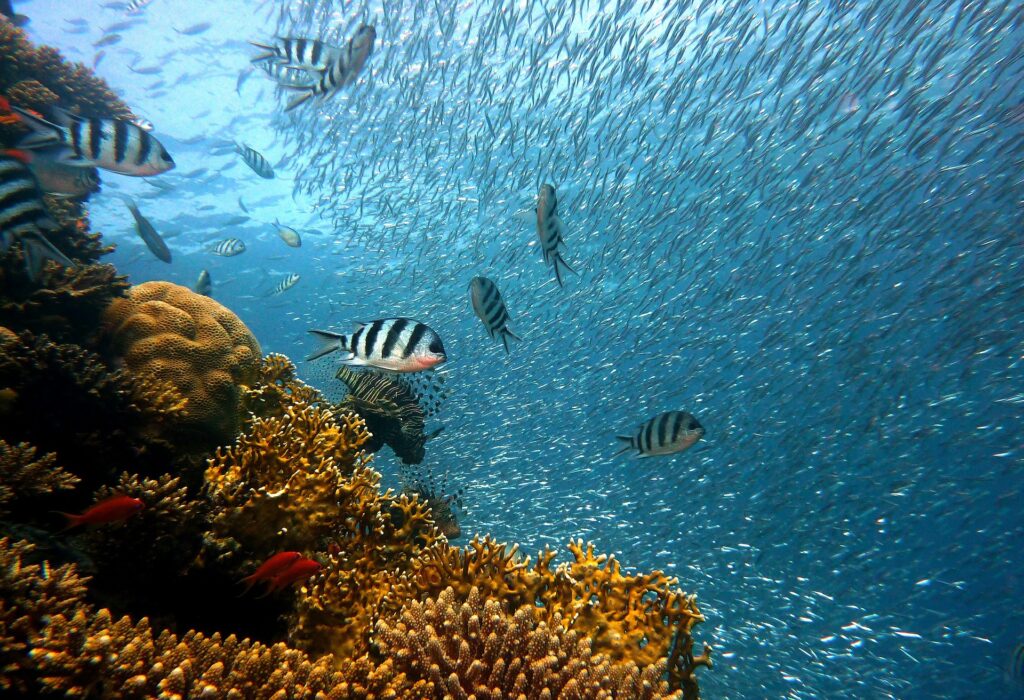As the atmosphere and oceans warm, marine cold spells are becoming less intense and less frequent overall, according to a new study.
Marine cold spells are cold versions of heat waves: periods of exceptionally cold water, able to hurt or help the ecosystems they hit. Today, the oceans experience just 25% of the number of cold spell days they did in the 1980s, and cold spells are about 15% less intense, researchers found. Weaker cold spells could mean they are less likely to cause mass die-off events, but having fewer cold spells also means refuges and recovery periods from marine heat waves are disappearing.
The study is thought to be the first to quantify and compare the changing nature of marine heat waves and cold spells over several recent decades on an ocean-wide, global scale.
Yuxin Wang, lead author and ocean and climate scientist at the University of Tasmania, said, “Recently, studies have focused on heat waves and warm ocean temperature events, less so the cold events. Because marine cold spells have both positive and negative impacts, understanding when, where and why these spells occur is critical for predicting their presence in the future. Predicting cold spells could be important for fisheries’ long-term planning and for ensuring catch limits are sustainable.”
Marine heat waves, like heat waves over land, are natural phenomena becoming more frequent and intense in some places as a result of anthropogenic climate change. Similarly, marine cold spells are natural, but their rates are changing around the world. Over the past decade, cold spells have occurred roughly 10 days per year globally, a notable drop from about 40 days per year in 1985.
To understand when and where marine cold spells occur and how those patterns have changed over time, Wang and her colleagues analyzed sea surface temperature data from 1982 to 2020, checking for periods of either extremely hot or cold temperatures. They found the oceans are warming, corresponding to global warming trends, and sea surface temperatures are becoming variable over time. That variability leads marine heat wave and cold spell intensities to change at different rates, complicating scientists’ attempts to predict each.
Establishing global trends in marine cold spells and their relationship to global warming is an important step, but further studies are needed to constrain regional and local effects, Wang said. Those local effects include impacts on fisheries, which can be positive or negative.
“Marine cold spells play dual roles in influencing ecosystems,” Wang said. “They can cause devastating impacts, like coral bleaching and mass mortality events. But cold spells can offset the impacts of heat waves.”
To view the original study published in the AGU journal Geophysical Research Letters, which publishes short-format, high-impact research with implications spanning the Earth and space sciences, click here.



